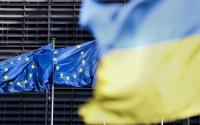www.thenation.com/blogs/dreyfuss/385746/obama_s_foreign_policy_team
23 November 2008
Robert Dreyfus
I hate to say I told you so, but here it goes.
In late September, in this column, I criticized Barack Obama for what I called a "pathetic" debate with John McCain, in which Obama got nearly everything about foreign policy wrong:
"He checked all the boxes. Barack ("Senator McCain is right") Obama couldn't find anything to disagree with the militarist Arizonan about. Support for NATO expansion? Check. Absurd anti-Russian diatribes? Check. Dramatic escalation of the war in Afghanistan? Check. I'm ready to attack Pakistan? Check. (Actually, on this one, McCain was the moderate!) Painful sanctions against Iran, backed up by the threat of force? Check. Blathering about the great threat from Al Qaeda? Check. It went on and on."
I pointed out that Obama went out of his way to say things like: "I believe the Republican Guard of Iran is a terrorist organization." And: "A resurgent and very aggressive Russia is a threat to the peace and stability of the region."
Last July, in a major feature piece for The Nation on Obama's foreign policy, I wrote:
"But in many respects, Obama seems likely to preside over a restoration of the bipartisan consensus that governed foreign policy during the cold war and the 1990s, updated for a post-9/11 world. ... Even as he pledges to end the war in Iraq, Obama promises to increase Pentagon spending, boost the size of the Army and Marines, bolster the Special Forces, expand intelligence agencies and maintain the hundreds of US military bases that dot the globe. He supports a muscular multilateralism that includes NATO expansion, and according to the Times of London, his advisers are pushing him to ask Defense Secretary Robert Gates to stay on in an Obama administration. Though he is against the idea of the United States imposing democracy abroad, Obama does propose a sweeping nation-building and democracy-promotion program, including strengthening the controversial National Endowment for Democracy and constructing a civil-military apparatus that would deploy to rescue and rebuild failed and failing states in Africa, Asia and the Middle East."
So are we surprised that now, as president-elect, Obama is selecting people whose views are coherent with Obama's frequently stated views? Are we surprised that the views of Obama's conservative and centrist advisers are, in fact, coherent with Obama's own? And are we surprised that his choices for his foreign policy and national security appointments are drawn exclusively from conservative, centrist, and pro-military circles without even a single -- yes, not one! -- chosen to represent the antiwar wing of the Democratic party? No, we are not.
What does it mean, then? Do we still believe that Obama was pretending to be conservative and cautious on foreign policy during the campaign, in order to get himself elected? Or is the truth, like Occam's razor, far simpler? Perhaps what Obama (and his advisers) said during the campaign reflects what they really believe.
We could all make lists of people that we might have chosen for secretary of state, defense, attorney general, homeland security, intelligence, and national security adviser. (True, not all of Obama's appointments are certain, yet, but the writing is on the wall.) It's now likely that not one of those posts will be filled with someone who either voted against the war in Iraq as a member of Congress or who, from outside Congress, vocally opposed the war. Not one.
What about Russ Feingold, Barbara Boxer, Chris Dodd, Sherrod Brown, and Jim Webb from the Senate? Where is John Kerry? What about Gary Hart and Al Gore? What about any one of a dozen or more prominent members of the antiwar and progressive caucuses in the House of Representatives, such as Lynn Woolsey, Jim McDermott, or Jim McGovern? What about the generals who, unlike General James E. Jones, didn't campaign with McCain and who spoke out against the war? What about the many prominent experts on disarmament and nonproliferation, like Lt. General Robert Gard, Gen. Joseph P. Hoar, and Peter Galbraith, all of whom serve on the board of directors of the Center for Arms Control? Or Joseph Cirincione of the Ploughshares Fund, a leading arms control expert? Well, you get the idea.
Here's the likely lineup so far: Secretary of State Hillary Clinton, Secretary of Defense Robert Gates, and National Security Adviser James E. Jones. For director of national intelligence, Dennis C. Blair, a retired admiral tangled up in the military-industrial complex? Key Obama advisers such as Richard Danzig, a former secretary of the Navy; Tony Lake, a former national security adviser; Susan Rice, an Africa specialist and former State Department official; and Mark Lippert, Obama's top Senate foreign policy aide are likely to get important deputy-level jobs, though Danzig -- who is on record supporting Gates for the job -- may yet get the top Pentagon post.
As I pointed out in my July piece for The Nation, Rice and Lake -- along with outside advisers Samantha Power and Sarah Sewell -- are on record supporting tough military action overseas in case of humanitarian crisis. Rice and Lake have said explicitly that they favor war against Sudan. Two years ago, they wrote in the Washington Post:
"The United States, preferably with NATO involvement and African political support, would strike Sudanese airfields, aircraft and other military assets. It could blockade Port Sudan, through which Sudan's oil exports flow. Then U.N. troops would deploy -- by force, if necessary, with U.S. and NATO backing.
"If the United States fails to gain U.N. support, we should act without it. Impossible? No."
Clinton, who now seems to be a lock for the State Department, would be likely to hire a passel of hardliners for her own aides, including people like Richard Holbrooke, Dennis Ross, and Leslie Gelb, all three of who serve on the advisory board of the ultra-hawkish group, United Against Nuclear Iran. She'd also draw on relatively conservative officials from the Center for a New American Security, the Brookings Institution, and other Washington thinktanks who are in tune with her own hawkish views on Israel, Iran, and projecting U.S. muscle abroad.
And then there is General Jones.
Out of the blue, in the third presidential debate, Obama cited Jones as someone he trusts on national security. He is an advocate for stepped-up defense spending. And, notes CNN, it's all one big, happy family:
"One person close to the transition noted Jones is a bipartisan figure who has warm relationships with both current Defense Secretary Robert Gates, who may stay on the job for at least a brief period, as well as Sen. Hillary Clinton, who is now on track to be nominated as Secretary of State after Thanksgiving."
Not once, but twice he was asked by Secretary of State Condoleezza Rice to be her deputy secretary of state. Adds the London Times, in an analytical story on Jones:
"Last year he conducted an investigation on behalf of Congress on the situation in Iraq and Afghanistan.
"'Make no mistake, Nato is not winning in Afghanistan,' he said. He also said that the war in Iraq had caused the US to 'take its eye off the ball' in Afghanistan, and gave warning that the consequences of failure there were just as serious as defeat in Iraq – views publicly expressed by Mr Obama.
"Before Mr Obama travelled to Afghanistan during the presidential campaign he was briefed by General Jones, who in 2007 was appointed by Dr Rice as a special envoy for Middle East Security."
National Review Online calls the idea of Jones at the NSC "a pretty good sign for hawks, a pretty bad sign for doves," which just about sums it up.






